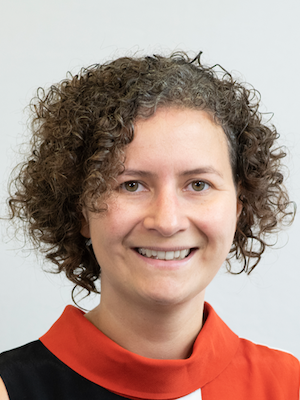Attending the Society for the Improvement of Psychological Science meeting in Padova
Attending the Society for the Improvement of Psychological Science meeting in Padova
Posted on 26 July 2023
Attending the Society for the Improvement of Psychological Science meeting in Padova
licensed under CC BY-SA 2.0.
By SSI Fellow Kasia Banas.
The Society for the Improvement of Psychological Science (SIPS) could be described as a psychology-focused SSI. It brings together people interested in improving research methods and practices in psychological science and provides a community, grants, and training and networking opportunities. SIPS has an associated journal, Collabra, and runs an annual conference.
The SIPS conference is also a bit like SSI’s Collaborations Workshop. It has no research presentations but consists of workshops, hackathons and unconferences. It is also relatively small (about 150 attendees), allowing people to mingle and network effectively.
Attending a SIPS conference has been a dream of mine for a few years, and so I made it a key aspect of my SSI fellowship application. As a psychologist, I feel very acutely that there is still lots to be done to improve the methods and practices in our field. I also feel (based primarily on discussions on Twitter) that the Open Science community in psychology is very friendly and welcoming. For these reasons, I have been wanting to meet more people who are part of this movement.
Travel
Before I describe my experience at the conference, I want to touch on the travel to and from Padova, as I decided to buy an Interrail pass and travel across Europe by train. I first flew from Edinburgh to Berlin where I had a planned research visit. Then I took the train towards Padova. This was my itinerary from Berlin to Kraków (where I attended another conference after the SIPS one):
- Berlin - Munich (4.5 hours)
- Munich - Venice (9 hours, night train)
- Venice - Padova (30 minutes)
- Padova - Bologna (1.5 hours)
- Bologna - Vienna (9 hours, night train)
- Vienna - Kraków (6 hours)
The train experience was mostly great. When travelling during the day, I got to read a book and watch the landscape outside. The night trains were pretty good for sleeping (we went for the fairly cheap 6-person sleeping carriages, but you can also splash out for a more private setting). The only frustrating moment was when the Munich-Venice train, scheduled to depart just before midnight, was 2.5 hours late, resulting in us having to wait at the not-very-nice train station.
I was pleased to hear (and read on Twitter) that many other SIPS attendees also travelled by train. I could see a shift towards sustainable travel, and I was very glad that the SSI was happy to support it by approving the InterRail pass as an allowable expense.
Getting connected
As I didn’t know many people who were going to attend SIPS, I decided to join the SIPS Sibs scheme, which links first-timers with experienced SIPS attendees. I was assigned to a group of four lovely women, and we decided to all have lunch on the first day of the conference. We chatted a bit about our work and conference expectations, and we got some great advice from Sarah, our conference mentor (Sarah’s key piece of advice was to take things easy and keep a balance between conferencing and resting, to avoid feeling overwhelmed). Having these early connections allowed me to feel more at home during the conference, and to have friendly faces around during tea and lunch breaks.
Learning stuff
As my job is primarily teaching-focused, I went to SIPS to learn new skills and techniques and to talk to people about teaching - how they teach, what they teach, and what challenges they face in teaching reproducible science with R.
During the conference, I prioritised workshops - I wanted to learn as much as possible! My favourite workshop was on creating an open source online textbook in R, led by Lisa DeBruine and Helena Paterson from the University of Glasgow. During the 4.5-hour workshop, we were able to create a skeleton of a book, and I now have serious plans to organise my teaching materials into a textbook. There were about 20 people in the workshop, and there was time for all of us to get personalised help and advice from Lisa and Helena.
At the conference dinner, I connected with the psychology methods teaching team from the University of Sussex. We talked about the challenges in teaching R, and I found out that they host a large dataset about statistics anxiety, which will be made publicly available in the next few weeks. We also brainstormed what data analysis projects we could create for students using this dataset and how it could be used to improve our own teaching.
Future plans
This year, I did not submit my own idea to SIPS, as I wanted to experience it purely as a participant. But I already have ideas for next time - many of my colleagues use pair programming in their teaching, and I have recently become a convert too. So, I’m thinking of putting together a pair programming workshop, introducing SIPS attendees to this method and giving them an opportunity to try it out. Watch this space for further updates on this!

